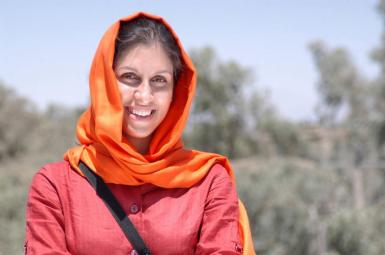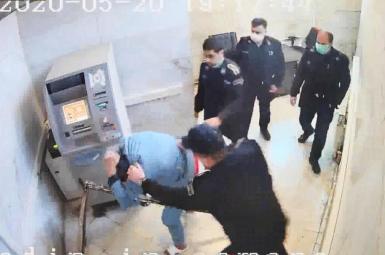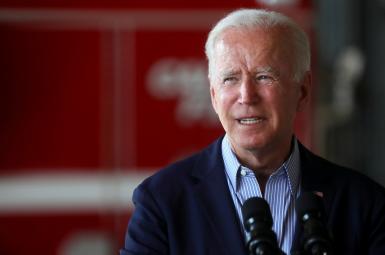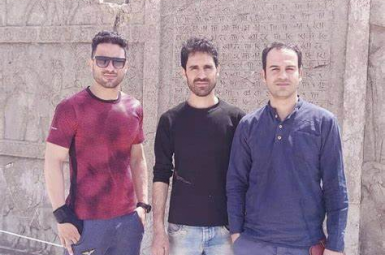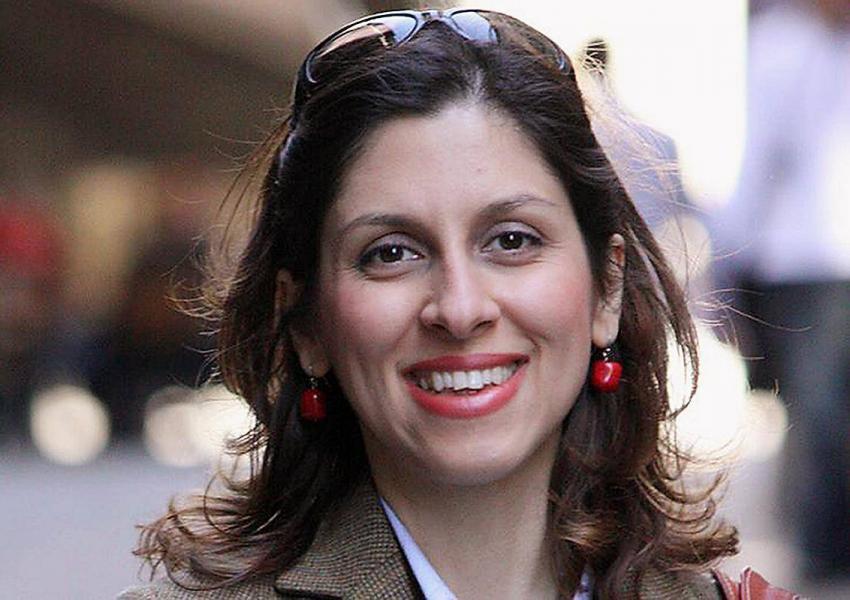
Exclusive: Redress Says Britain Must Stand Up For ‘Torture’ Victim Zaghari-Ratcliffe
Redress, the London-based human-rights charity, has called on the British government to recognize as a victim of torture Nazanin Zaghari-Ratcliffe, Iranian-British dual national and project manager for the Thomson-Reuters Foundation, who faces new charges in court in Tehran on March 14, days after she completed a five-year sentence on March 7.
Leanna Burnard, Legal Officer at Redress, told Iran International Friday [March 12] that London should be more proactive. “It’s critical that the government assert its right to attend the court hearing this coming Sunday. Nazanin’s court hearings have never been public and she’s never had a fair trial, which contravenes international law…a consular official at the hearing would help to protect her fundamental rights.”
Burnard said that the UK’s responsibility would continue whatever happened on Sunday. She argued that London could consider “imposing human-rights sanctions on the individuals responsible for her treatment in Iran” and that the UK should work with “other affected countries to exert pressure on Iran to stop its practice of arbitrarily detaining foreign nationals.”
Redress on March 11 presented British Foreign Secretary Dominic Raab with a 77-page evaluation commissioned from the International Rehabilitation Council for Torture Victims (IRCT), an umbrella grouping. The report says its conclusions are “highly consistent” with Zaghari-Ratcliffe’s allegations of torture and ill-treatment during detention in Iran over five years, including the past year under house arrest at her parents’ home in Tehran.
Two forensic specialists produced their report in February 2021, after they examined Zaghari-Ratcliffe virtually − presumably by video-link − for six hours over three days in October 2020.
They concluded that Zaghari-Ratcliffe suffered from post-traumatic stress disorder, depression and obsessive-compulsive disorder due to treatment in prison and under house arrest, and to continuing uncertainty and separation from her family. They also found physical pain and impairment in her neck, right shoulder, and arm, arising from her treatment and the denial of medical care.
The report said Zaghari-Ratcliffe was “in urgent need of psychiatric pharmacological and psychotherapeutic support, as well as evaluation and treatment of her physical symptoms.” Treatment could “be only provided in the UK in the presence of her family,” the report said, as her recovery required “a safe and non-threatening environment.”
‘Protect Her From Further Harm’
Zaghari-Ratcliffe spent four years in prison, including eight months in solitary confinement, with a year of house arrest ending with the removal of a security anklet on March 7. Rupert Skilbeck, Director of Redress, said the group, which seeks reparations for torture victims, had “long held that Nazanin’s treatment by Iran amounts to torture.” He said the UK government should do everything in its power to protect her from further harm.”
Boris Johnson, the UK prime minister, raised Zaghari-Ratcliffe’s case in a phonecall this week with Iranian President Hassan Rouhani, prompting speculation that the British might pay a £400 million ($555 million) owed to Iran to help secure her release.
Skilbeck said that while the British government had said it had no obligation to protect British nationals abroad, it was Redress’ view that “governments have a positive obligation under international law to respond when their citizens have been subjected to torture…”
Zaghari-Ratcliffe was detained in April 2016 on spying charges during a visit to her family in Iran. Later in 2016, the United Nations Working Group on Arbitrary Detention found that her detention was arbitrary and requested her release. Six UN Special Rapporteurs have stated that Nazanin’s treatment may amount to cruel, inhuman or degrading treatment or torture, as prohibited under Article 7 of the International Covenant on Civil and Political Rights.
